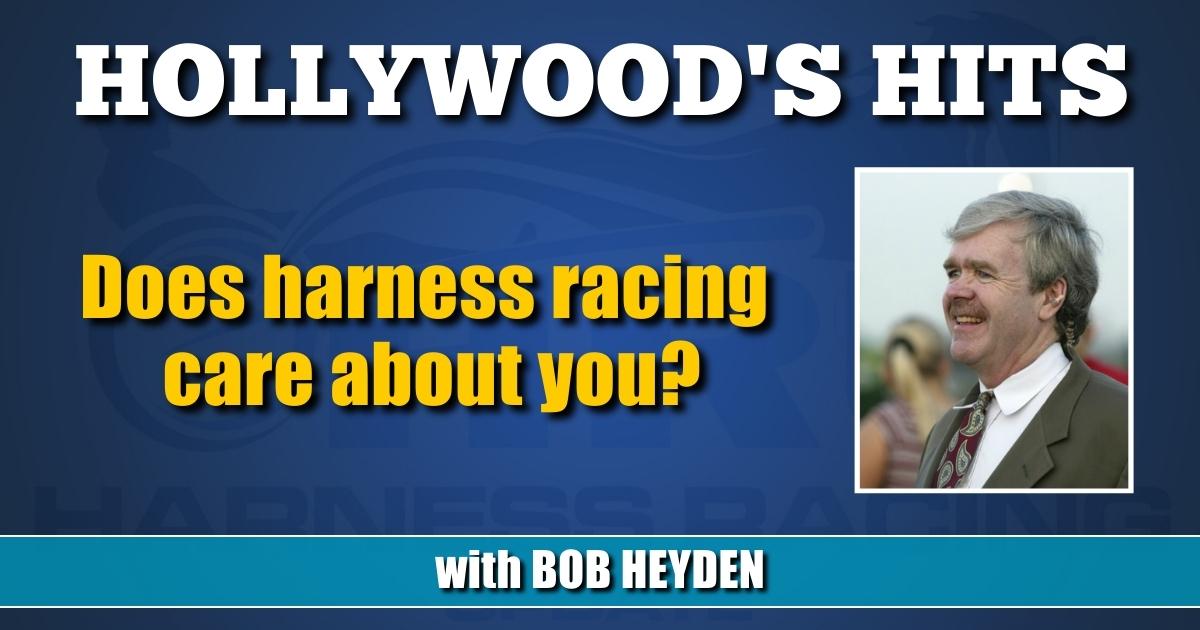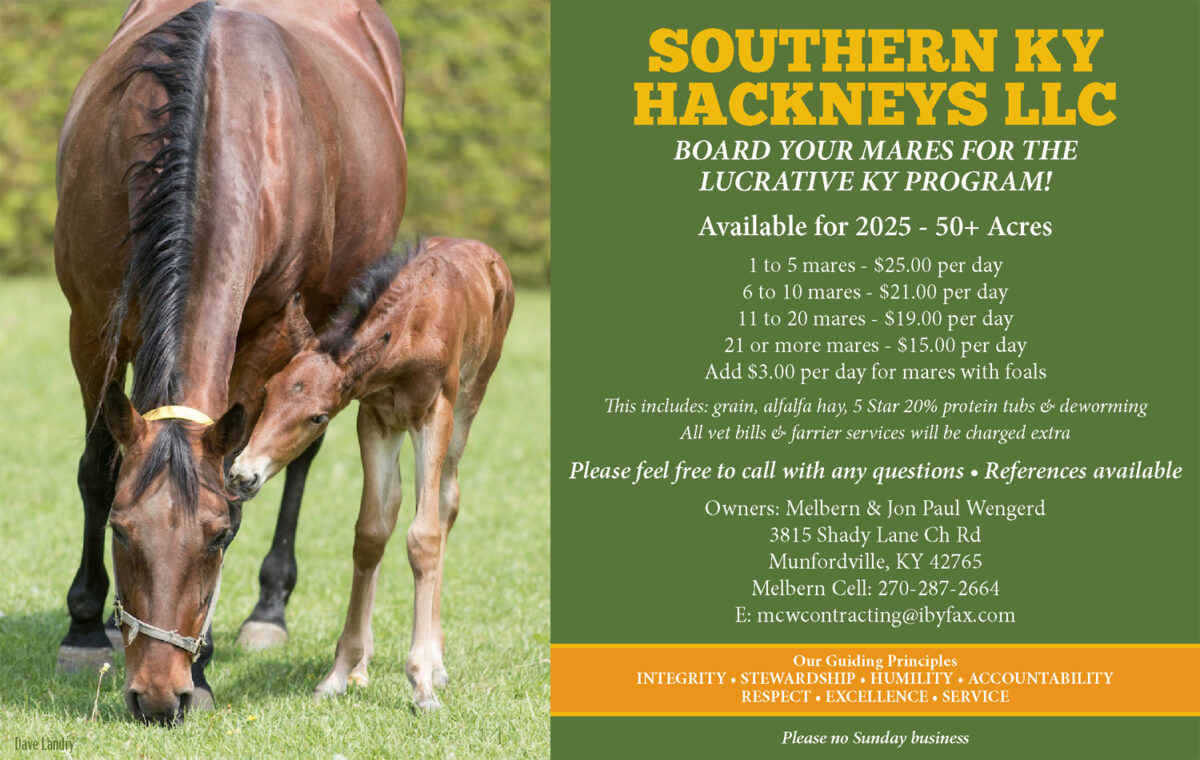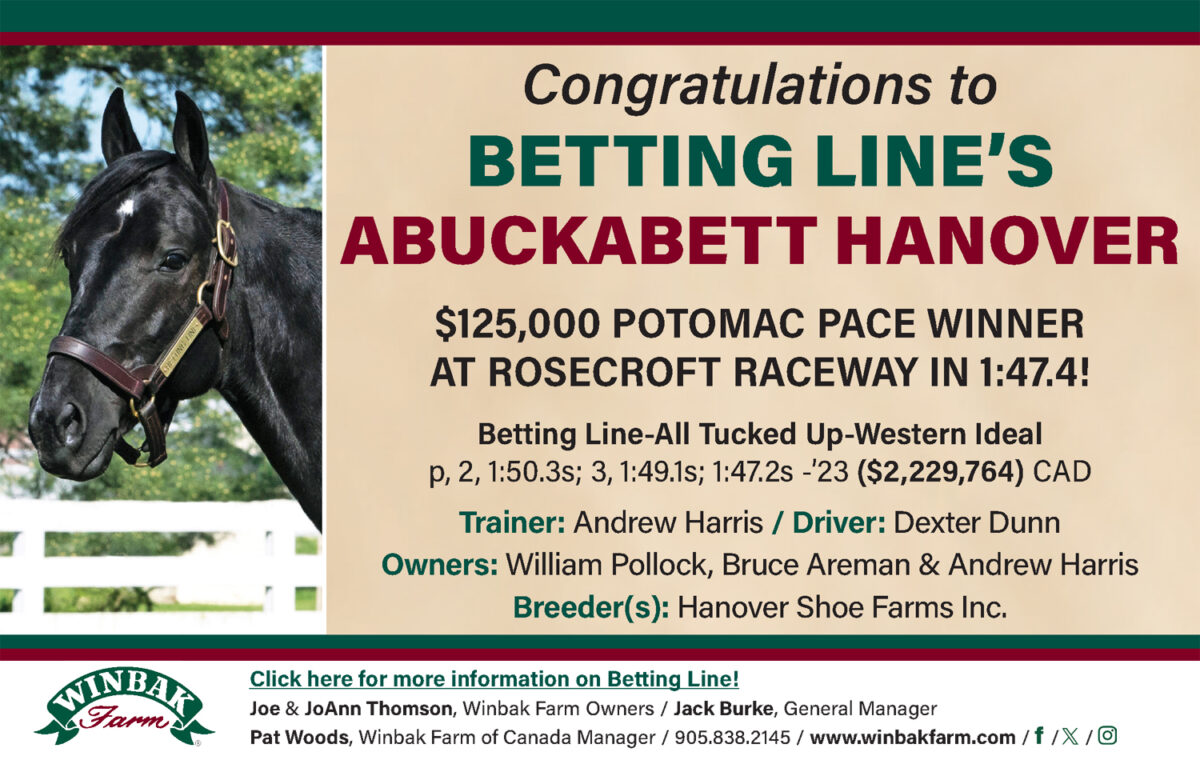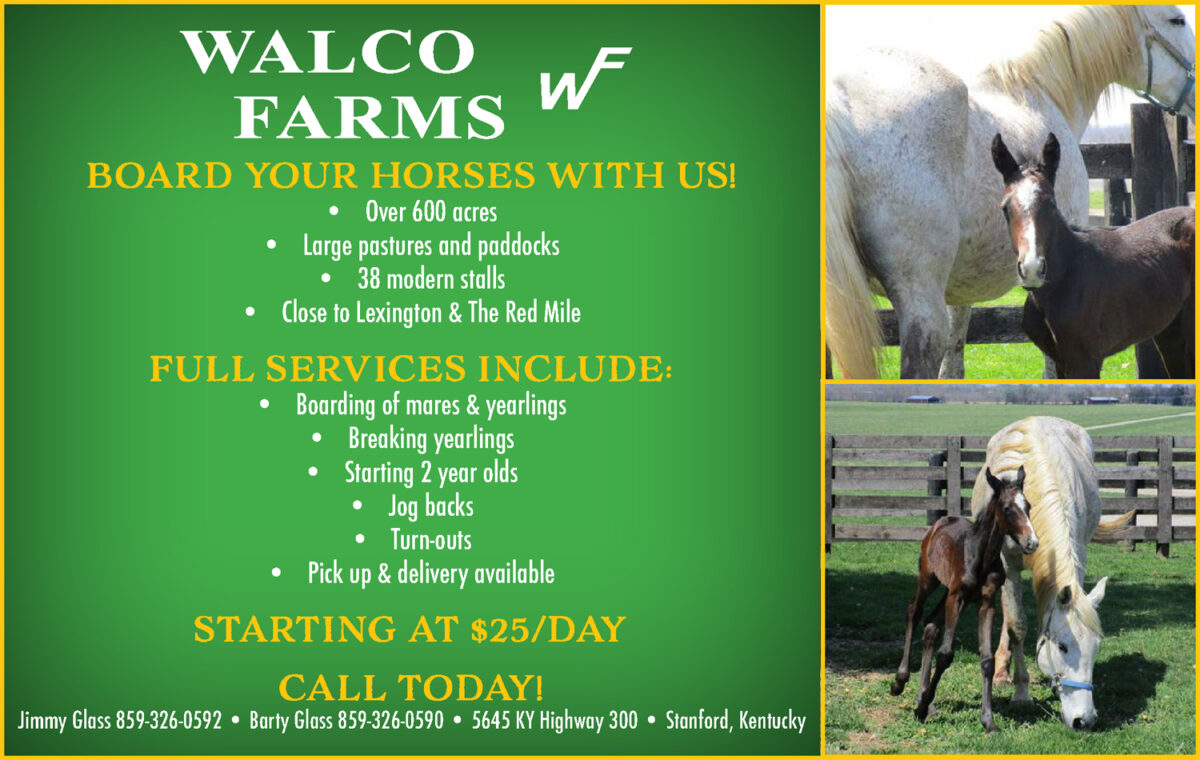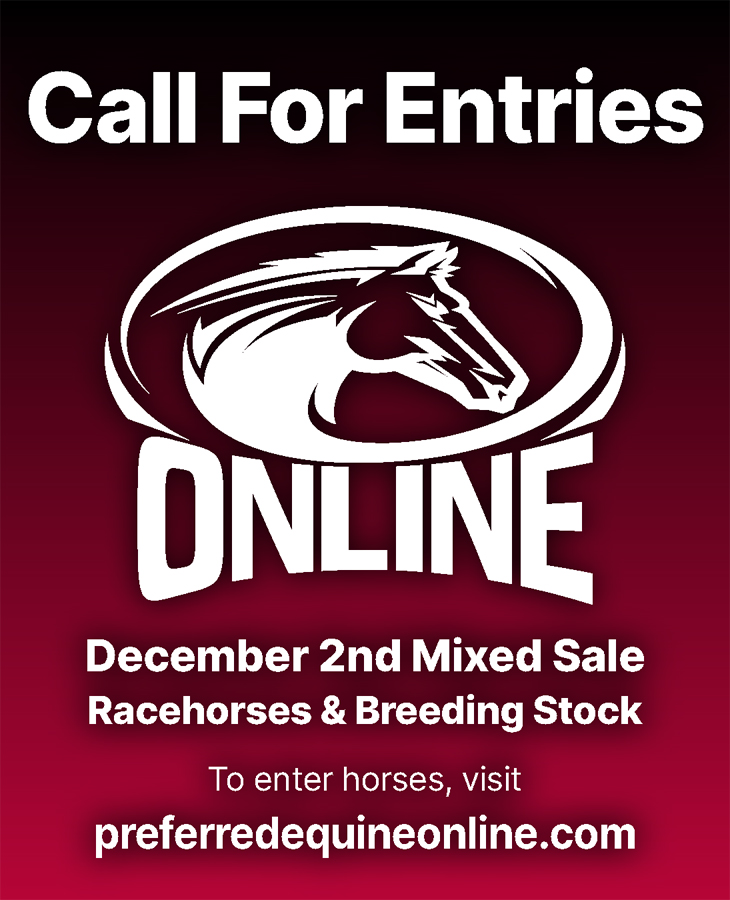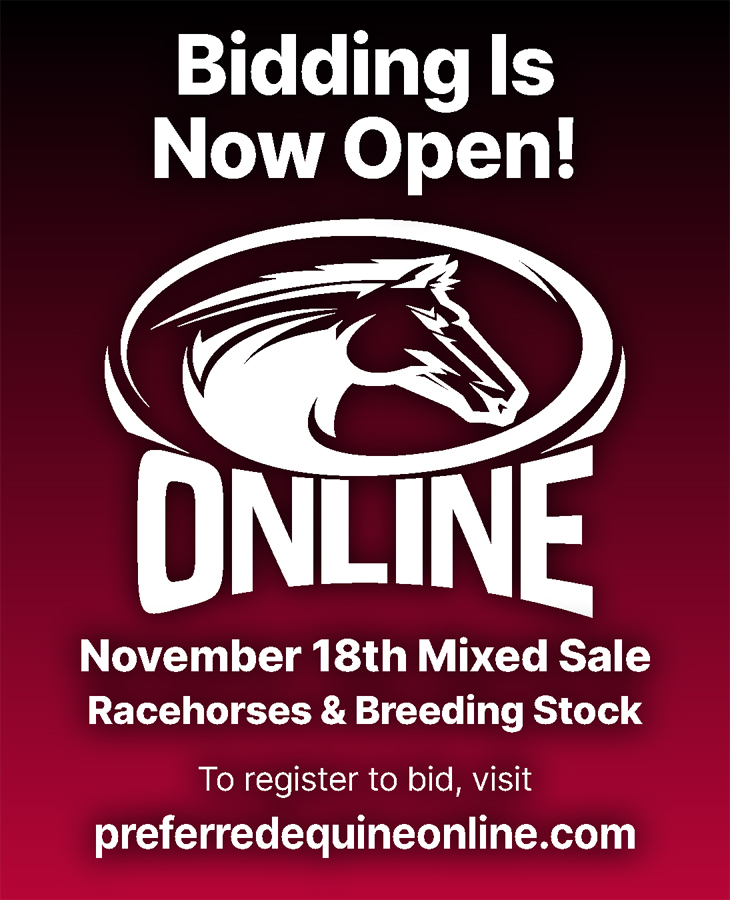Does harness racing care about you?
by Bob Heyden
This question “Does harness racing care about you?” was posed to a delightful dozen representing a wide range of positions in, or used to be in, the industry. There is no right or wrong answer here.
1. JACK DARLING: “In my case, harness racing is doing fine for me. All my life I have made my living racing, buying and selling horses as an owner. Harness racing provides adequate purses and racing opportunities to do that. The OnGait auction site has revolutionized our ability to buy and sell horses quickly, easily and for fair prices. Harness racing has provided the opportunity for the breeding business, yearling sales and stakes racing to thrive. The rising expenses have made turning a profit much tougher, but it is still possible.”
2. JIM BERNSTEIN: “My answer is easy. Have to have fans in the stands. Without this, the sport dwindles.”
3. DAVE MATTIA: “I have been saying ‘self-inflicted wounds’ for 20 years. The leadership, in my opinion, is often unqualified and it’s as though anyone can just walk into racing and hang up a shingle saying that they are the guy with the solutions.
“At one time, before he switched professions, my older brother was one of the highest paid marketing execs in the USA. He’d often lecture young marketing executives about the failed marketing of potentially viable brands, and he often used harness racing as an example. Although he never participated in the sport, it was his opinion that harness racing was a prime example of how to not market your product. The irony is that 99 per cent of the time most young marketing executives didn’t even know what harness racing was, which became my brother’s opening talking point.
“Similarly, but on a somewhat positive side, I had an economics professor when I was in college who used harness racing as an example of the brilliance of the claiming system in racing for classification of horses and creating a kind of currency. He used claiming to show how an artificial economy and invisible wealth is invented or created from nothing but perception of a lot of intangibles. He was not a harness racing fan, and he said so, but he appreciated the claiming system as a teaching tool. Of course, I totally got it because I was already in the business, but a lot of the other students didn’t. In fact, most of them either never heard of harness, or they called it ‘chariot racing.’”
4. JOHN KOPAS: “I’ve said for years the younger generation doesn’t have the respect for the greats that went before them.”
5. PAUL KELLEY: “It’s not whether harness racing cares particularly about me, it’s more about does harness racing care about itself. The obvious answer is no. What industry could possibly be more fractured by individual interests than ours? Racing commissions, racetrack/casinos, horsemen’s associations, etc., all operate strictly for their own interests. We have rendered ourselves dysfunctional by our own greed.”
6. MICHAEL CRUSE: “Harness racing in my opinion only cares for the elite premier races. Big card, big money. This is what harness racing represents to me. It’s at the point we don’t have a lower level of racing anymore. Very seldom do AE1, AE2s get in. The claimers are extinct, especially the cheaper ones which kept a small guy in the business. Doing away with the barn areas also takes the cheaper horses out of play with the cost of boarding and shipping.”
7. LAURIE MORNINGSTAR: “I think dad [Buddy Gilmour] was satisfied by the way he was treated at the end. He was disappointed with the track closings like the rest of us. He had many memories of people and horses that served him well to the end.”
8. PETER BLOOD: “It doesn’t seem that way now, but in the past, I have been recognized for my career by being inducted into the New England/Florida Halls of Fame.”
9. MARY MCDERMOTT: “I think that when you look at it as a whole the answer is no. But then when you break down each major aspect/category you see the people who do care. Harness racing is made up of a bunch of small organizations and businesses and those are the people that keep us afloat. I think after working for the Hambletonian Society for five years — going above and beyond to make sure grooms were always cared for and given fantastic swag bags at major events — we as a Society along with our sponsors cared. I think HHYF shows they care by trying to get the youth involved. Equipment companies care by giving back to banquets and donating auction items. But with that being said, I think there’s many things in harness racing that could show they cared a little bit more about the small stables and the trainers, grooms and owners who don’t have major stakes horses but have been in the business for many years. I think harness racing should care a little more because without the horses we wouldn’t have harness racing.”
10. GEORGE ANTHONY: “Never did, never will. Racing should be more worried about its survival into the near future as the numbers keep dwindling.”
11. JUSTIN IRVINE: “I think it depends on the person. The bigger the name than yes, I think they care about you. It also depends on what jurisdiction you are in. Some places take really good care of their horsemen and others couldn’t care less.”
In this case I did save the best for last.
12. MARY PAT RHODES: “A perfect subject. Harness racing was taken over by a group of PR people that held the sport hostage. They thought they were more valuable than the horses or trainers. Greed and fame ruined the sport. To hold an USHWA dinner off-track shows just how arrogant they have become. These fat cats wanted Vegas or Orlando to fit their foodie needs. It became an elitist gang of nobodies. It started in our era [Mid-1980s to present]. They only allowed the chosen ones in the gang. Years of elitism went on. Useless PR people would promote their gang and forgot the sport. It became who and not why.
“We rewarded the PR people and not the people who put on the show. Everything is about the experience. Harness tracks lost the experience. Driving into dirty broken-down facilities is a turn off. There has to be a touch of all six senses. There should have been entertainment. Their greed wound up killing the golden goose. I remember Lofty Bruce [top trainer 1980s] asking Merle MacDonald [top assistant for The Bill O’Donnell stable] why he was taking me and my friends to the track as we were only grooms.
“There should have been attention to the racing side of the sport. More focus on the horses. A good PR person hides in the background and showcases the subject. Not one of those can be found in the PR offices today. Tracks have cut out the guests experience. I have watched major successful marketing from Disney [in her home state of Florida]. It is always the experience. When you drive into the property you get transported into the Disney magic. You see the landscaping and the fresh painted signs and buildings. Everything looks fresh. You walk through the gates and you get hit with the Disney magic in an explosion. You walk into a track and you get stale beer, sweat and old mustard smells smack you. Remember how amazing it was to walk into the lobby at Pompano? The palm trees and the stone floors transplanted you to a beach vibe. With a touch of elegance. Making people dress up was the only way to conduct that atmosphere too. When you elevate the person, you elevate the experience.
“The overplayed figureheads of our sport killed it too. Showing up to the races or awards shows is too easy. Pompano Park died when you couldn’t see the track from the dining room. They moved the grandstands away from the winner’s circle. You couldn’t see the finish line. Geez, that was the highlight of the track. You want to see the finish. Remember how cool it was to see Herve [Filion] arrive via helicopter? Or watching the pageantry of the winner’s circle for every race. I was caught up in post parades. The bugle, the elegance of each horse walking past and under the lights. It made me want more. The old windows that you had to walk to, none of that betting from your own table. That made it too automatic. I loved the talk shows prior to the races and during. We learned while enjoying the show.
“The old timers got to be held in esteem. [Stanley] Dancer, [Billy] Haughton, [Del] Miller, [Carmine] Abbatiello and [Buddy] Gilmour. Then after them the throw to the wayside happened. Only a few got out with their reputation intact. The gang of grifters took over. We started so strong. I started at Vernon. It was family, community. We knew each other. We partied together and we mourned with each other. Drivers, trainers, CEOs, directors, always said hello. No grandstanding then. I loved visiting Blue Bonnets. They were so welcoming every year. The gang of up and comers was replaced by those who couldn’t. No big wig stepped up with any plan to help Pompano. Never an action plan just a bunch of moaning. I remember back in the day the New Jersey horsemen wanted to boycott The Meadowlands’ box. Horsemen from PA then dropped their horses in. Their greed was taking over. I see it every day. I walk past Pompano, my heart sinks when I hit that side, it’s brutal. The construction sites are empty. The Governor has opened border patrols on I-95. The construction sites are coming to a stop. Pompano’s plans will not get built this decade.”







